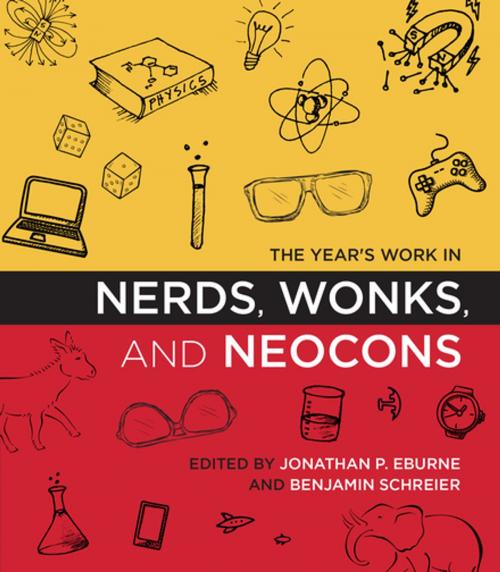The Year's Work in Nerds, Wonks, and Neocons
Nonfiction, Entertainment, Film, History & Criticism, Performing Arts, Social & Cultural Studies, Social Science, Cultural Studies, Popular Culture| Author: | ISBN: | 9780253026873 | |
| Publisher: | Indiana University Press | Publication: | April 17, 2017 |
| Imprint: | Indiana University Press | Language: | English |
| Author: | |
| ISBN: | 9780253026873 |
| Publisher: | Indiana University Press |
| Publication: | April 17, 2017 |
| Imprint: | Indiana University Press |
| Language: | English |
What happens when math nerds, band and theater geeks, goths, sci-fi fanatics, Young Republican debate poindexters, techies, Trekkies, D&D players, wallflowers, bookworms, and RPG players grow up? And what can they tell us about the life of the mind in the contemporary United States? With #GamerGate in the national news, shows like The Big Bang Theory on ever-increasing numbers of screens, and Peter Orzsag and Paul Ryan on magazine covers, it is clear that nerds, policy wonks, and neoconservatives play a major role in today’s popular culture in America. The Year’s Work in Nerds, Wonks, and Neocons delves into subcultures of intellectual history to explore their influence on contemporary American intellectual life. Not limiting themselves to describing how individuals are depicted, the authors consider the intellectual endeavors these depictions have come to represent, exploring many models and practices of learnedness, reflection, knowledge production, and opinion in the contemporary world. As teachers, researchers, and university scholars continue to struggle for mainstream visibility, this book illuminates the other forms of intellectual excitement that have emerged alongside them and found ways to survive and even thrive in the face of dismissal or contempt.
What happens when math nerds, band and theater geeks, goths, sci-fi fanatics, Young Republican debate poindexters, techies, Trekkies, D&D players, wallflowers, bookworms, and RPG players grow up? And what can they tell us about the life of the mind in the contemporary United States? With #GamerGate in the national news, shows like The Big Bang Theory on ever-increasing numbers of screens, and Peter Orzsag and Paul Ryan on magazine covers, it is clear that nerds, policy wonks, and neoconservatives play a major role in today’s popular culture in America. The Year’s Work in Nerds, Wonks, and Neocons delves into subcultures of intellectual history to explore their influence on contemporary American intellectual life. Not limiting themselves to describing how individuals are depicted, the authors consider the intellectual endeavors these depictions have come to represent, exploring many models and practices of learnedness, reflection, knowledge production, and opinion in the contemporary world. As teachers, researchers, and university scholars continue to struggle for mainstream visibility, this book illuminates the other forms of intellectual excitement that have emerged alongside them and found ways to survive and even thrive in the face of dismissal or contempt.















